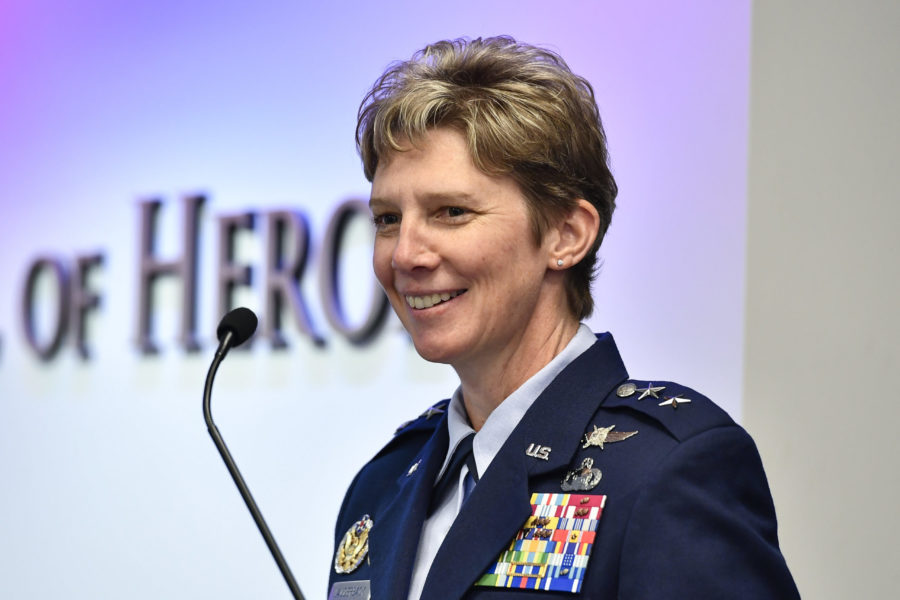China’s space infrastructure has made it more of a military match for the U.S. than Russia, in terms of space, but Russia presents more of an “unknown,” especially as it’s “boxed into a corner” in its invasion of Ukraine, said a top Space Force intelligence officer.
Maj. Gen. Leah G. Lauderback spoke during the Defense One/Nextgov Intelligence Summit streamed March 24.
As the Space Force’s senior intelligence officer for its intelligence, surveillance, and reconnaissance “enterprise,” which amounts to about 800 people, she said she tries to instill a “warfighting mentality”—specifically, “How do we defend the capabilities that we have?”
Russia made a dramatic offensive demonstration when it launched a kinetic anti-satellite weapon at one of its own derelict satellites in November 2021, creating a debris field of more than 1,500 objects in low Earth orbit. As of February, that debris was causing so-called “squalls” of conjunctions, or close approaches, with satellites. An estimated 40,000 conjunctions were to take place in the first week of April alone.
Russia also has demonstrated a satellite that flew close to a U.S. satellite, Lauderback said: “They had what we assessed as a counterspace capability essentially flying near one of our capabilities and following us around.”
The Space Force’s role in the Russia-Ukraine war has included gathering intelligence to present to U.S. Space Command and U.S. European Command along with services such as GPS. “It’s battle space awareness. It’s missile warning—it’s things of that nature,” Lauderback said. “Communications. I say that’s a huge one—that we support all the other warfighters out there.”
But an intelligence officer really wants to “understand the adversary,” Lauderback said, and the Space Force is also tasked with “observing, and watching, and being able to try to characterize what is happening in the Ukraine crisis.”
While she gauged China as “more of a rational actor at this point,” she estimated that “Russia is more of an actor that I feel is unknown, and maybe more of a concern, about being boxed into a corner”—a situation in which “you’re not a hundred percent certain what it is that they will do.”
Russia also doesn’t have as high a stake in the orbital environment as the U.S. and China.
“Russia does not use it nearly as much,” Lauderback said. “They are very good at what they do from a space perspective and a counterspace perspective, but they are less dependent on it.”
China, on the other hand, has observed the U.S.’s use of space since it came into play in the Gulf War, and “has truly built a capability and a counter space capability,” making it “truly the challenge” from the Space Force’s perspective.
“I mean, it’s incredible to see,” Lauderback said. “It’s not just about their counterspace—that does threaten us—but it’s also how they use their space capabilities, their intelligence collection capabilities. Because what are they using that for? Of course, they’re using that to track us.”
Unlike Russia’s trend, that advancement could lead to dependency.
The difference, “is that China has an overwhelming capability, and they need it,” she said. “They’re going to be, at some point, dependent on their own use [of] space.”
